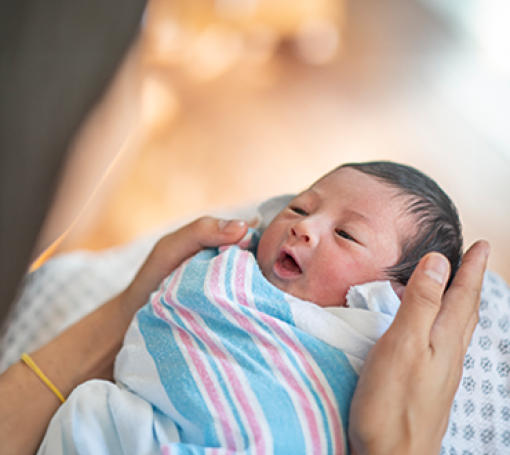Mental health is an important component that contributes to overall health and well-being. Many children and adolescents experience anxiety, depression, attention, academic, sleep concerns, and media addiction. As a parent, it is important to understand how to support your child’s mental wellness and what to look for as potential signs of a mental health problem.
What is Mental Health?
Mental health encompasses emotional, behavioral, and social well-being. Our mental health affects how we think, feel, and act.
Talking to Your Child or Teen About Mental Health and Wellness
It is ideal to begin conversations about feelings and emotions with children at a young age. Talking about mental health regularly makes conversations more comfortable. The goal is to create a safe place for discussion without judgment. Such phrases as “I think...” or “I feel...” are non-threatening. When you are open and honest with your kids, which may include addressing your own anxieties or challenges, they are more likely to share their thoughts and feelings with you. The underlying message is that it is normal to feel a wide range of emotions, but with practice and support, we can learn healthy ways to cope and feel better.
Establishing a relationship with a trusted primary care provider is an important step in incorporating mental health into your child’s routine care. Often, children and adolescents experiencing mental health concerns will need a counselor or another specialist in the community to customize and receive necessary support. Allegro has compiled a list of local therapy resources and counseling options by school district available on our Mental Health Resources & Counseling Options handout.
Things To Look for That May Indicate a Mental Health Problem
Children undergo significant brain and hormonal development as their bodies grow. This often leads to huge emotional changes. It can be normal for them to experience challenges as they learn to navigate and communicate about their feelings and emotions. Here are some behaviors that may indicate your child or teen needs additional support:
- Uncontrollable negative thoughts or worry
- Experiencing physical symptoms such as headaches, stomach pains, rapid breathing, fast heartbeat, or diarrhea
- Avoiding activities due to anxiety or fear
- Changes in sleep habits
- Changes in eating habits
- Feeling restless or wound up
- Giving up on challenging tasks
- Struggling to concentrate
- Struggling in school
- Withdrawing from social or family time
- Feeling sad or irritable
- Feeling guilty
- Talking about death or suicide
Taking a course in Youth Mental Health First Aid can be a helpful resource if you regularly interact with adolescents. Youth Mental Health First Aid teaches you how to identify, understand and respond to signs of mental health and substance use challenges among children and adolescents ages 12-18.
What To Do If Your Child Is Experiencing a Mental Health Crisis
It is important to know the following community resources exist if your child is in crisis and needs to speak to a professional as soon as possible.
In-person:
- Go to Seattle Children’s Emergency Room
If you need a mental health professional to come to your home during a crisis:
- King County Children’s Crisis Outreach Response System (CCORS): (206) 461-3222
- Snohomish County Crisis Response: (425) 388-7215
By text or phone:
- National Suicide Prevention Lifeline: Call 988 (Anyone in the US can call 988 for a mental health emergency the same way you call 911 for a physical health emergency)
Keep Reading
View All Posts
Helping Kids Breathe Easier
By checking asthma control at every well care visit, we can identify changes early and make sure each child has the support they need to breathe comfortably and stay active.

Protecting Your Newborn from Hepatitis B
Learn why the birth dose of the hepatitis B vaccine matters for every baby.

Choking Prevention and First Aid
Learn how to recognize choking risks, prevent accidents, and respond effectively with first aid to keep infants and children safe.

